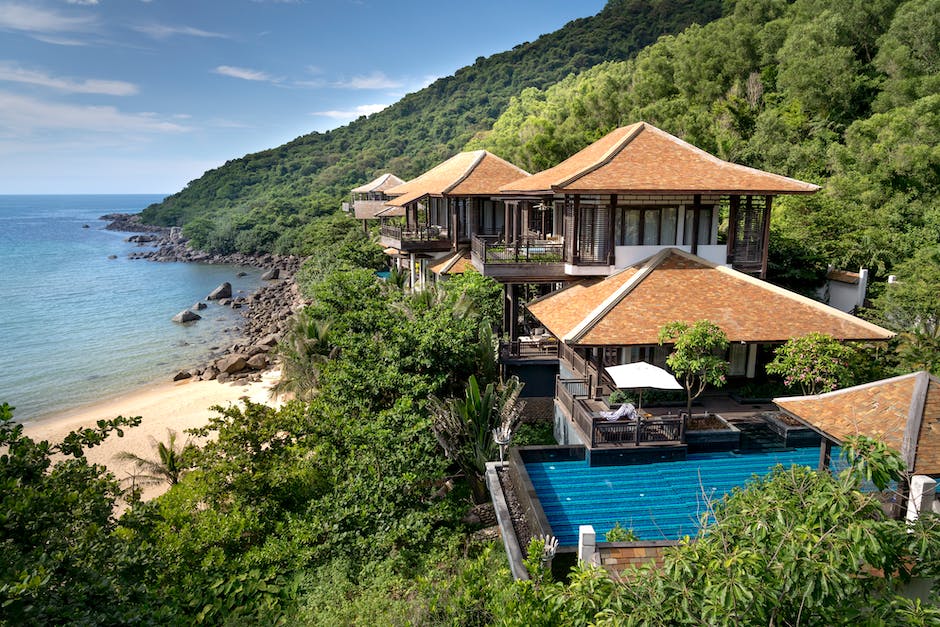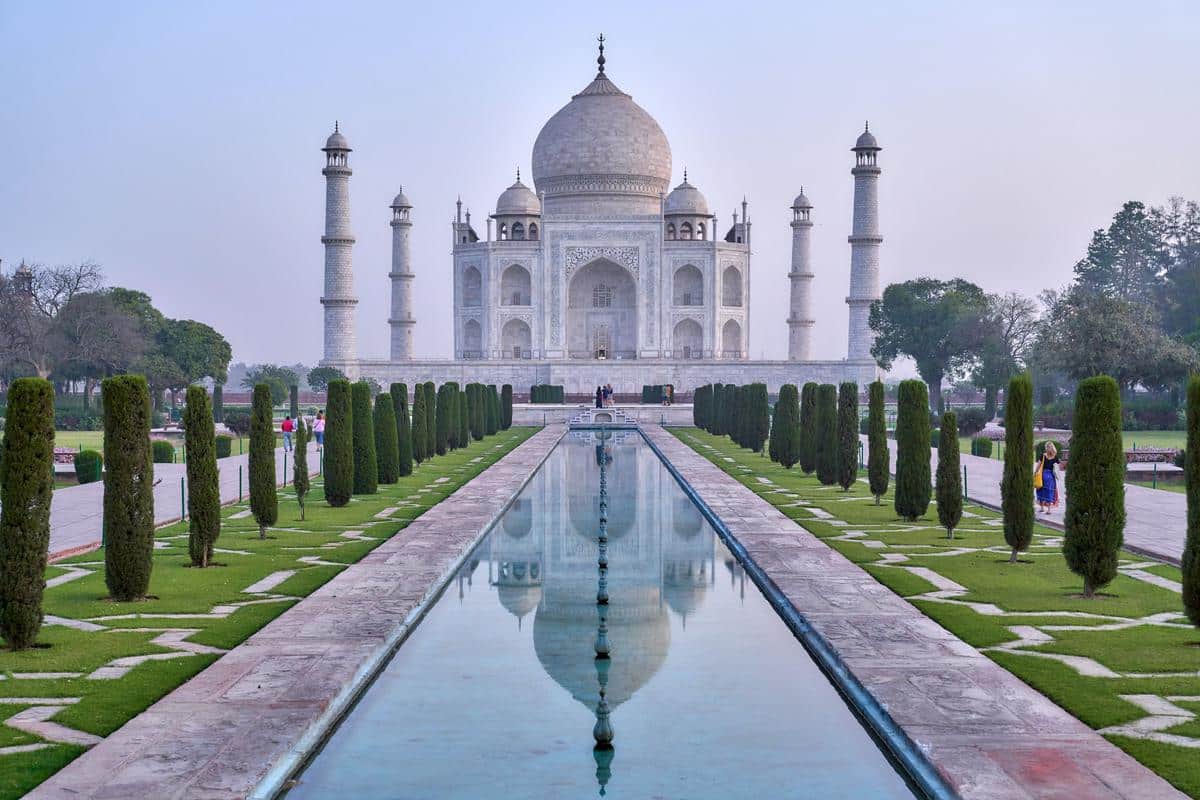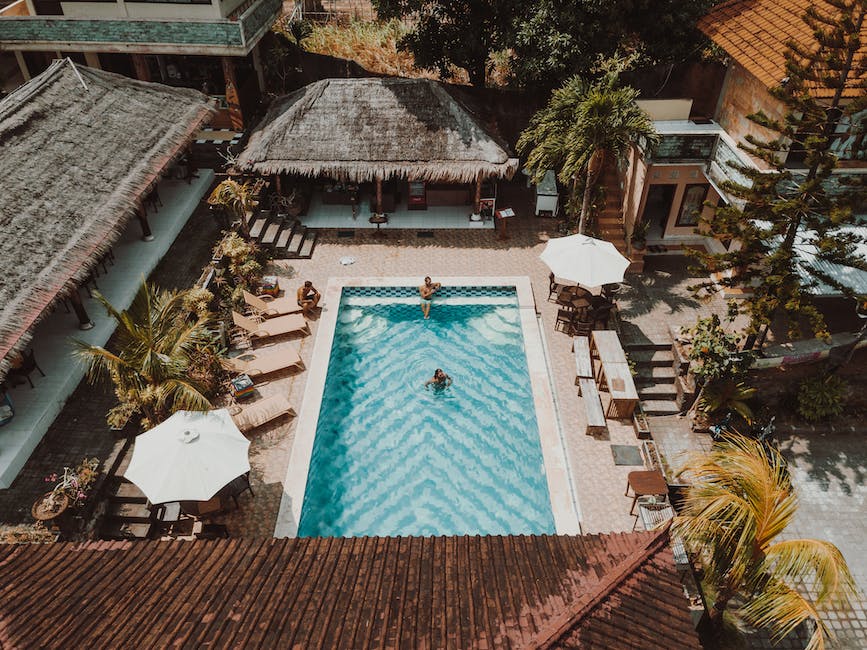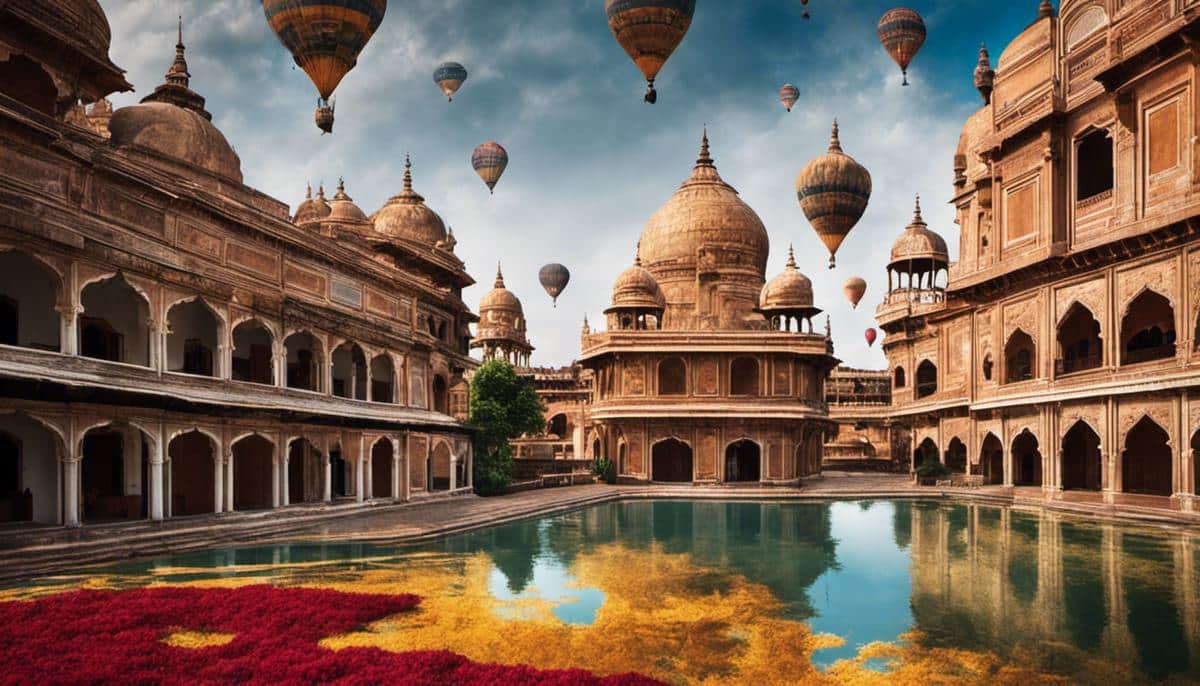Delving into the vibrant and evolving panorama of the hotel industry in India offers remarkable insights into its rich history and promising future. From its nascent stage during the British rule, to transforming through the times of the country’s independence and subsequent economic liberalization, the industry presents a riveting narrative. The hospitality sector in India has not only evolved but has emerged as a powerhouse, boasting a tapestry of both renowned hospitality chains and unmissable landmark hotels. Moreover, the industry has not remained immune to global influences, adopting modern trends, practices, and technological advances. Yet, like every other sector worldwide, it has had to endure the impacts of global occurrences, COVID-19 being the most recent.
The Beginnings of India’s Hotel Industry
Initial Pacesetters in the Indian Hospitality Industry
The hotel industry in India has a rich history that dates back to the 18th century. During British rule, the setting up of initial hotels was primarily driven by the need for suitable accommodations for visiting British officials and growing number of travelers. One of the first established hotels was The Park Hotel in Bengal, established in 1803 by Captain Smith. The year 1840 saw the setting up of another landmark establishment, The Great Eastern Hotel in Calcutta, popularly known as “the Jewel of the East.”
Becoming a Tale of Cities
Many of the first hotels were designed to mimic opulent European palaces, offering the height of luxury for guests. With English-speaking staff, fine dining experiences, and sometimes even imported British furniture, these early establishments set a high standard for the Indian hospitality industry. Not only were they instrumental in shaping the industry, but they’ve also left a lasting architectural legacy, with some still operating today.
Post-Independence Expansion
Post-independence in 1947, the Indian hotel industry expanded significantly with the rise in domestic and international tourism and the thrust on economic development and international interaction. Several hotel groups were established including the Oberoi Group in 1934 and the Indian Hotels Company, operator of the Taj Hotels Resorts and Palaces, which remains one of South Asia’s largest and finest group of hotels.
Policy Developments and Hotel Industry Expansion
In 1961, the Government of India enacted the Hotel Reception Act to promote the growth of the hotel industry further through FDI and concessional loans. Granting ‘industry’ status to the business of hotels, facilitated increased access to funding and foreign investment. Several international hotel chains like Hyatt and Hilton began investing in India, contributing to the growth and modernization of the hotel industry, that we see today.
Shift Towards Budget Accommodations
While the early era of the hotel industry in India was marked by luxurious establishments primarily catering to the affluent, by the late 20th and early 21st century, there was a significant trend towards budget accommodations. This was fueled by factors such as increased domestic travel and the rise of the middle-class demographic in India. Recognizing this demand, multiple local brands such as FabHotels, OYO Rooms, and Treebo Hotels emerged to provide affordable, standardized accommodations throughout the country. In recent years, the concept of specialty lodging like homestays and serviced apartments has also started gaining popularity.
The story of the hotel industry in India is a journey through time, characterized by colonial influences, steady expansion, structural evolution, and present-day adaptation. As the industry continues to develop and reinvent itself, it upholds its rich traditions and heritage, while embracing the ever-changing needs of its diverse clientele.

Impact of Independence and Economic Liberalisation
The Birth of the Hotel Industry Post-Independence and the Arrival of its First Establishments
In correlation with India’s independence, the inception of the country’s hotel industry commenced. The early years post-independence in 1947 saw the birth of several homegrown hotel firms. These included the grand opening of the legendary Taj Mahal Palace Hotel in Mumbai in 1903. Following this were enterprises like East India Hotels (now referred to as EIH Ltd.), the Oberoi Group, the Indian Hotel Company Limited (IHCL), and the Hotel Leela Venture.
Period of Government Intervention
Till the 1980s, the industry was heavily regulated and primarily operated by the government. In 1950s and 1960s, The India Tourism Development Corporation (ITDC) was established, which played a major role in promoting hotels and tourism in the country. Another body, the Hotel Corporation of India Ltd., was set up in 1971 to manage hotels in major cities and tourist destinations.
Impact of Economic Liberalisation on Hotel Industry
However, the hotel industry in India took a significant turn when the government introduced economic liberalization policies in 1991. The industry was opened up for private and foreign investments that spurred growth and brought in a revolution of international standards in the sector. Various international brands started entering the Indian market, leading to the emergence of a robust, competitive hospitality landscape.
With the liberalization of trade policies, foreign direct investment (FDI) was encouraged in the hotel industry. The impact of economic liberalization was transformative, as it provided a much-needed impetus to the industry, making it one of the fastest growing sectors of the Indian economy. The increase in influx of business and leisure tourists within the country and from abroad also significantly contributed to the growth of the industry.
Present Era: Growth and Expansion
In the subsequent years, the industry witnessed a period of consistent growth leading to an influx of both international and local hotel chains. The sector thrived on the high demand due to increasing purchasing power of the middle class, growing penchant for leisure travel, and a rise in corporate travel due to emergence of India as a business destination. Today, the hotel industry in India is characterized by presence of various global brands, diverse types of accommodation options, and a rising trend of unconventional lodging alternatives such as home stays and serviced apartments.
Government Policies & Initiatives
The Government of India, recognizing the importance of tourism and its potential in promoting economic growth, has undertaken various initiatives such as ‘Incredible India’ and ‘Atithi Devo Bhava’ to promote India globally as a tourist hotspot. More recently, the government’s ‘Make in India’ initiative identifies tourism and hospitality as a growth industry.
Conclusion
In summary, there was a significant transformation in the Indian hotel industry post-independence. This change was heavily driven by economic liberalizations, shifting the industry from government-controlled to a sector dictated by market forces. As a result, the Indian hotel industry has seen consistent growth, innovative approaches and a wide array of hospitality offerings.

Key Players and Landmark Hotels
Taj Hotels Resorts and Palaces: The Figurehead of Luxurious Indian Hotels
At the helm of this transformation has been one of India’s most iconic luxury hotel chains, the Taj Hotels Resorts and Palaces. Established in 1903 by the founder of Tata Group, Jamsetji Tata, the Taj Mahal Palace Hotel in Mumbai was the first flagship property of the Taj Hotels and the country’s first harbor landmark. Its unique blend of red-domed, Indo-Saracenic architecture rapidly became a symbol of luxury and Indian hospitality. The Taj group has since flourished and now encompasses over 100 hotels across the globe, including internationally recognized properties such as the Rambagh Palace in Jaipur and the Lake Palace in Udaipur.
Oberoi Hotels: Luxury Redefined
Whether it’s opulence in architecture or unparalleled service, The Oberoi Group is another key player in the Indian hotel industry. Its founder, Rai Bahadur Mohan Singh Oberoi, started with acquiring the lease for the Grand Hotel in Shimla in the 1930s. By the time of India’s independence in 1947, he owned several prestigious hotels across India. Within decades, Oberoi expanded its reach to seven countries. The Oberoi Udaivilas in Udaipur and The Oberoi Amarvilas in Agra are two of its properties that epitomize luxury.
ITC Hotels: Luxury with a Heart for Sustainability
ITC Hotels, a division of the ITC Limited, is a premier chain known for its ‘Responsible Luxury’ concept. Established in 1975, it became the second largest hotel chain in India with over 100 hotels. ITC created a unique identity of marrying opulence with eco-friendly initiatives. The ITC Maurya in New Delhi and the ITC Grand Chola in Chennai are examples of ITC’s commitment to sustainability and luxury, featuring green technologies and local sensibilities in design.
The Indian Hotels Company Limited
Commonly known as IHCL, The Indian Hotels Company Limited operates the Taj Hotels Resorts and Palaces. IHCL was incorporated in 1899 by Tata Sons Ltd with the first property, The Taj Mahal Palace & Tower, opening in 1903. According to an official statement, the Taj Hotel is renowned for its architectural magnificence and its place in history, not just as a mere stately hotel but an integral part of India’s legacy.
An Intellectual Property: Leela Palaces, Hotels and Resorts
The Leela Group is a premium luxury hospitality brand in India established in 1987 by C.P. Krishnan Nair. With unique architecture and a keen sense of elegance, the Leela Palaces are reminiscent of the royal palaces of India. The company owns eight luxury properties across the country in prime urban cities and magical holiday destinations. Particularly, The Leela Palace Udaipur and The Leela Palace New Delhi are notable for their grandeur and luxury.
Budget Hotels: New Players, New Game
The Indian hotel industry has also seen a boom in budget accommodations, with companies like OYO Rooms and Treebo Hotels leading the pack. OYO Rooms, which launched in 2013, quickly became the largest hotel chain in South Asia due to its affordable rates and standard amenities across properties. Similarly, Treebo Hotels, established in 2015, has disrupted the budget hotel market by focusing on quality and consistency in its services and properties across India.
Preserving History and Culture with Heritage Hotels
With the aim of protecting historical residencies like palaces, mansions (havelis) and forts from past eras, the government has converted these properties into heritage hotels. This initiative not only promotes tourism but also preserves these significant structures. Prominent examples include the Umaid Bhawan Palace in Jodhpur and the Neemrana Fort Palace in Alwar. By carefully maintaining the original architecture and art pieces from their respective eras, these heritage hotels provide a luxurious stay coupled with a nostalgic trip into India’s royal history.

Current Trends and Innovations
The Rise of Boutique Hotels
Another trend that has rapidly caught on in the Indian hotel industry is the surge of boutique hotels. These hotels, moving away from the conventional ‘business hotel’ concept, emerged from a desire to create unique, personalized experiences for travelers. Catering to a specific section of the market that values exclusivity and uniqueness over standardized accommodation, boutique hotels offer exceptional service and a distinct theme. In cities steeped in history like Rajasthan, these hotels often adopt local architectural styles, traditions and cuisines, providing visitors with a deeply rooted cultural immersion.
Technology Integration in the Hotel Industry
Technological advancements have played a considerable role in modernizing the Indian hotel industry. High-speed internet, mobile check-ins, digital concierge services, and IoT-enabled rooms are transforming the customer experience. More recently, hotels have begun to invest in Artificial Intelligence (AI) and Machine Learning (ML) technologies to analyze customer data and preferences, enabling them to provide personalized service and targeted marketing. An example of this is AI-driven chatbots that assist hotel guests with reservation inquiries and other requests 24/7, thereby amplifying customer service and efficiency.
Sustainable Practices in Indian Hotels
Sustainable and eco-friendly practices have also gradually infiltrated the Indian hotel industry, as an increasing number of travellers have started preferring hotels that demonstrate a commitment to the environment. Hotels are adopting practices such as waste management solutions, energy-efficient operations, rooftop gardens, and sourcing local organic produce to reduce their carbon footprint. Some hotels have also started implementing water conservation methods and using renewable energy sources.
Luxury Segment Growth
India, renowned for its rich historical heritage and glamorous palaces, has seen significant growth in the luxury hotel segment. Luxury hotels, especially in historical regions, have helped in preserving architectural sites and converted old palaces and forts into luxury accommodations, thus offering a unique cultural experience to their affluent guests.
Adapting to the Sharing Economy
The entry of platforms like Airbnb has disrupted the traditional hospitality industry, prompting hotels to innovate to hold their market share. More hotels are now offering apartment-style accommodations and homestays to attract the younger demographic that prefers more flexible and local living experiences over traditional hotel stays.
Responding to Health and Wellness Trends
The global trend of health and wellness tourism has influenced the hotel industry in India, with many hotels incorporating wellness facilities and offering yoga retreats or Ayurveda therapies. This shift aligns with India’s rich history of holistic health practices.
Experiential Tourism
Experiential tourism trend, which emphasizes engaging with the local culture, history, people and environment of a destination, has shaped the hotel industry’s approach to its offerings. To cater to this demand, hotels are tying up with local service providers for adventure sports, culinary tours, heritage walks, etc., to provide an immersive experience beyond accommodation.
Observing current patterns in the Indian hotel industry, it becomes apparent that the sector is continually adapting to align with shifting consumer demands and international trends. Yet, it has also successfully maintained its deep-rooted cultural and historical significance. The mixture of creative integrative approaches into the Indian hotel industry signals a forward-thinking outlook towards its future expansion and advancement.

Impact of Global Events and Covid-19
Global Events Transforming India’s Hotel Industry
The Indian hotel industry’s trajectory over time has been significantly shaped by numerous international events. These occurrences range from natural calamities to financial downturns, each inducing variances in the volume of tourists and travelers. These variations inevitably impact hotels’ occupancy levels and financial gain. A prime example of such a transformative global event includes the Covid-19 pandemic, which drastically affected the hotel industry across India.
Effects of Covid-19 on India’s Hotel Industry
Covid-19 immensely disrupted the Indian hotel industry, posing unprecedented challenges. With travel and tourism at a near-standstill and lockdown measures in place, the industry faced severe revenue losses. According to a report by JLL India, the pandemic led to a whopping 80% drops in the hotel sector’s revenue generation in 2020.
Lockdowns disrupted the regular operation of hotels, leading to significant revenue losses, and many hotels had to close their doors temporarily. These closures impacted many stakeholders, including employees and suppliers. Some establishments had to lay off staff, while others implemented salary cuts, further worsening the revenue situation.
The restriction on international travel significantly impacted luxury and high-end hotels in India that relied heavily on foreign tourists. Even as domestic travel was allowed during the eased lockdown periods, the fear of infection kept many potential local tourists at bay.
Strategies Adopted to Combat the Challenges
India’s hotel industry crafted innovative strategies to combat Covid-19’s impact. Some establishments pivoted their business models and services to adapt to the new normal. Many hotels started offering work-from-home (WFH) packages to capitalize on the increased need for people to work remotely. These packages provided a quiet and comfortable environment for clients, allotting rooms as personal working spaces while providing necessary amenities like Wi-Fi and refreshments.
Moreover, hotels started implementing stringent safety and hygiene standards to reassure guests. They adopted contactless services using technology, such as digital menus, online payments, and mobile applications for services.
To alleviate revenue pressure, some hotel establishments converted their properties into temporary quarantine facilities and catered to healthcare workers’ needs. As part of corporate social responsibility, certain hotels offered meals to frontline healthcare workers and people in need.
The pandemic highlighted the need to diversify sources of revenue for many hotels. This led to hotels looking at other avenues such as food delivery, hosting virtual events, and long-stay arrangements.
Finally, hotels heavily started promoting domestic tourism, targeting local travelers through attractive offers and packages. The idea was to fill in the void left by international tourists and capitalize on locals’ desire to break the monotony of lockdown and work from home.
Continuing Impact and Way Forward
While the worst may seemingly be over, the hotel industry is still reeling under the effects of the pandemic and is likely to continue to do so for some time to come. The onset of new Covid-19 variants and the wave of infections further derailed the recovery process. However, with the vaccination process speeding up and steady improvements in the situation globally, there is hope for an impending revival.
Overall, while the pandemic has posed significant challenges, it has also pushed the Indian hotel industry to innovate significantly. And while the road to recovery may take time, the strategies adopted during the crisis will likely serve the industry well in the long run.

The landscape of India’s hotel industry, as we observe today, is a testament to its resilient grit in the face of challenges, and its innovative spirit in embracing change. The industry has eulogized its past, learnt from its challenges, and adapted to modernity with an agile dynamicity. Looking back at its growth trajectory and current developments, it is evident that the industry is on an incessant journey towards enhancement, in an endeavour to offer optimal hospitality. The global pandemic has indeed left deep imprints, yet these extraordinary times have also moulded the industry and shown the way forward. The road to recovery and resurgence lies ahead, and undoubtedly, the Indian hotel industry is all equipped to chart its course resolutely and robustly.